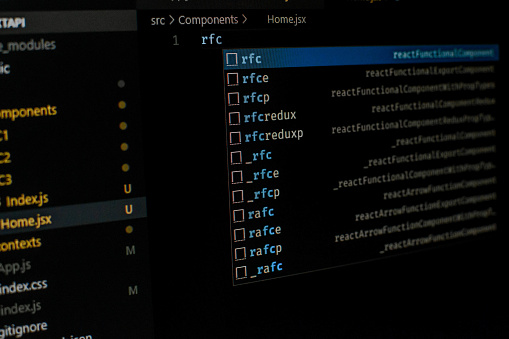Introduction:
Node.js has become a popular platform for web application development. It offers several advantages over traditional server-side technologies such as PHP or Ruby on Rails. One of the key benefits of Node.js is its ability to handle a large number of concurrent requests with minimal overhead.
However, building web applications in Node.js can be challenging, especially when it comes to handling HTTP requests and responses. This is where Express.js comes in. Express.js is a minimalist web framework for Node.js that provides a set of robust features for building web applications. In this blog post, we will discuss why you should use Express.js for your next web application project.
In today’s world, web application development has become an essential part of almost every business. With the increasing demand for web applications, the need for efficient and effective web development tools has also grown. Node.js has emerged as a popular platform for web application development due to its ability to handle a large number of concurrent requests with minimal overhead.
However, building web applications in Node.js can be a challenging task, especially when it comes to handling HTTP requests and responses. This is where Express.js comes in. Express.js is a minimalist web framework for Node.js that provides a set of robust features for building web applications.
In this blog post, we will dive deeper into the benefits of using Express.js for web application development. We will discuss its features, advantages, and limitations. By the end of this blog post, you will have a clear understanding of why you should consider using Express.js for your next web application project.
Important Points:
- Simplifies HTTP request handling: One of the key benefits of Express.js is that it simplifies HTTP request handling. It provides a routing system that allows you to easily handle HTTP requests and responses. You can define routes for various HTTP methods such as GET, POST, PUT, DELETE, etc. and map them to specific functions or handlers.
- Supports middleware: Another important feature of Express.js is its support for middleware. Middleware functions are functions that sit between the client and the server and can modify the request and response objects. You can use middleware functions to perform tasks such as authentication, logging, compression, and more.
- Easy to learn: Express.js is a relatively simple framework that is easy to learn, especially if you are already familiar with Node.js. Its syntax is straightforward and well-documented, and there are plenty of resources available online to help you get started.
- Scalable: Express.js is highly scalable and can handle a large number of concurrent requests without compromising performance. It achieves this by using an event-driven, non-blocking I/O model that allows it to handle multiple requests at the same time.
FAQ’s:
1.Is Express.js suitable for large-scale applications?
A. Yes, Express.js is highly scalable and can handle large-scale applications with ease. It has been used to build several high-traffic websites such as MySpace, Yummly, and Segment.
2.Does Express.js support MVC architecture?
A. Yes, Express.js supports the MVC (Model-View-Controller) architecture, which is a popular design pattern used for building web applications.
3.Is Express.js compatible with other Node.js modules?
A. Yes, Express.js is compatible with other Node.js modules and can be easily integrated with them. This makes it easy to extend its functionality and add new features to your web application.
Pros:
- Simplifies HTTP request handling.
- Supports middleware for added functionality.
- Easy to learn and use.
- Highly scalable and can handle large-scale applications.
- Compatible with other Node.js modules.
Cons:
- Lack of built-in support for certain features: Express.js is a minimalist framework, which means that it lacks built-in support for certain features such as database integration, form validation, and session management. However, these features can be easily added using third-party modules.
- Steep learning curve for beginners: Although Express.js is easy to learn for those already familiar with Node.js, it can have a steep learning curve for beginners who are new to web development.
Final Conclusion:
Express.js is a powerful web framework for Node.js that provides a set of robust features for building web applications. It simplifies HTTP request handling, supports middleware, and is highly scalable. Although it lacks built-in support for certain features, these can be easily added using third-party modules.
Overall, if you are building a web application in Node.js, then using Express.js can save you a lot of time and effort. It is easy to learn and use, and there are plenty of resources available online to help you get started. So, if you haven’t already, give Express.js a try

